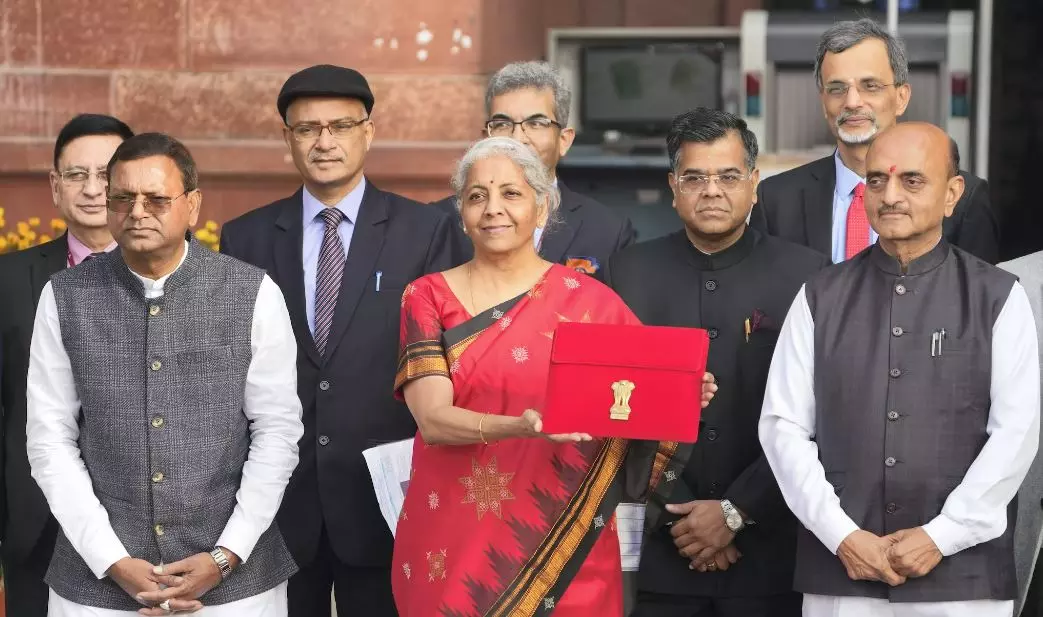
Budget 2024-25: Start-ups expect govt to abolish angel tax to boost funding
Budget should also address key issues like providing tax credits for early-stage start-ups, simplifying regulatory norms, and investing in education and digital infrastructure

With a number of start-ups facing shutdown as investor funds dry up, the industry expects several sops from the forthcoming Union Budget, including the abolition of the controversial angel tax.
As the third-largest start-up ecosystem globally, India hosts over 141,780 DPIIT-recognised start-ups, generating over 1.24 million direct jobs.
Demand to abolish angel tax
One of the most urgent demands from the start-up community is the abolition of the contentious angel tax. Under Section 56(2) VII B of the Income Tax Act, angel tax imposes a levy on start-ups when they raise capital by issuing shares to domestic investors at a price exceeding the company's fair market value. This regulation has created considerable uncertainty, deterring investment, particularly during the crucial early stages of a startup’s lifecycle.
The Department for Promotion of Industry and Internal Trade (DPIIT) is also reported to have recommended removing the angel tax. By eliminating this tax, the government can reduce the financial and bureaucratic burdens on start-ups, encouraging more investors to support nascent ventures. This move is expected to lead to increased capital inflow, essential for the growth and sustainability of start-ups.
Tax exemption
Currently, the government allows start-ups to receive a tax exemption on angel tax, but the conditions are too stringent for promoters to opt for it. The conditions include that the start-ups’ aggregate paid-up share capital and share premium should not exceed ₹25 crore. Restrictions have also been imposed on establishing subsidiaries, providing loans/advances, and investing certain assets.
These conditions can be difficult for growing start-ups to adhere to, as they may limit their ability to expand, acquire other companies, or make investments.
Tax exemption terms
For a start-up to qualify for this tax exemption, it must meet certain strict conditions:
Capital limits: The total amount invested in the start-up's shares (paid-up share capital and share premium) must not exceed ₹25 crore. Hence, it works like a cap on the amount of money the start-up can raise from investors without facing the angel tax.
Investor criteria: The investors who invest in the start-up must meet specific requirements regarding their net worth (total assets minus liabilities) and income. Essentially, only financially strong and credible investors are allowed to invest.
Restrictions on financial activities: The start-up cannot set up subsidiaries (smaller companies controlled by it). It cannot give out loans or advances. The start-up also cannot invest in certain assets (like real estate or luxury items).
Challenges that start-ups face
Expansion limits: The capital limit can be a problem for start-ups that need more than ₹25 crore to grow. It restricts their ability to raise enough money.
Acquiring other companies: Not being able to establish subsidiaries or give loans can make it hard for start-ups to buy other companies or expand their operations.
Investment restrictions: The restrictions on where they can invest their money limit their ability to diversify and potentially grow their business.
Tax credit
Providing tax credits for early-stage start-ups is crucial for incentivising innovation and fostering growth. These credits can significantly reduce the financial burden on fledgling companies, allowing them to allocate more resources towards research, development, and scaling operations.
Vijay Shekhar Sharma, CEO of Paytm, has emphasised the need for robust support for start-ups to sustain the momentum in the Indian start-up economy. Simplified taxation norms can reduce unnecessary scrutiny, promote smoother operations, and enable start-ups to focus on growth and innovation without being bogged down by complex tax procedures.
Holistic regulatory framework
Start-ups advocate for a holistic regulatory framework review to create a more conducive environment for entrepreneurial ventures. Simplified regulations can reduce bureaucratic red tape, encouraging more individuals to pursue entrepreneurial endeavours and supporting existing start-ups in their growth trajectories.
The current tax regime often subjects start-ups to complex procedures, creating operational hurdles that can stymie growth. Simplified taxation norms and streamlined regulatory processes can make it easier for start-ups to operate efficiently, fostering a more vibrant and dynamic start-up ecosystem.
Fintech sector
The fintech sector, a critical component of India's start-up ecosystem, expects policy implementations around regulations, streamlining licensing processes, and offering tax incentives. These measures are vital for fostering a dynamic environment for innovation and ensuring the sector’s continued growth.
Digital infrastructure
Adequate funding for cybersecurity measures and digital advancements, including the adoption of Artificial Intelligence technology, is essential to support the growth of tech start-ups. Enhancing the overall efficiency and security of the digital economy can significantly benefit the start-up ecosystem, promoting innovation and competitiveness.
Rural economy
The budget should prioritise skill training, especially for young women in rural areas, and encourage the evolution of women entrepreneurs from Women’s Self-Help Groups. Promoting inclusivity and economic empowerment can drive broader economic growth and ensure that the benefits of the start-up boom reach all segments of society.
Investment in digital infrastructure
Investing in digital infrastructure is expected to curb malpractices in competitive examinations and ensure transparency and fairness in the educational system. Such investments are vital for nurturing future entrepreneurs and innovators, creating a robust foundation for the start-up ecosystem.
Launching schemes to boost domestic investments and enhancing public-private partnerships are expected to drive the digital financial revolution. These initiatives can spur growth in the start-up ecosystem, creating new opportunities and promoting innovation.
The budget can significantly enhance the start-up ecosystem by addressing key issues such as the angel tax, providing tax credits for early-stage start-ups, simplifying regulatory norms, and investing in education and digital infrastructure. These measures can create a more favourable environment for start-ups, driving economic growth and positioning India as a global leader in innovation and entrepreneurship.

